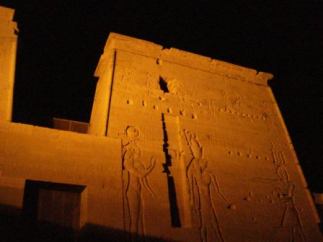Women in Egypt (Part Three)
"I love him," murmured my veiled masseuse in a husky voice, as she massaged my shins. "I love him but I cannot marry him, because I am Nubian and he is not Nubian, and my father says you cannot marry a man who is not Nubian."
She continued in a low breathy whisper throughout the massage -- from toes to hips to ears, a litany that provided a soft musical accompaniment to the pressing hand movements (that sometimes -- at climactic moments -- just stopped midair).
"I love him, but I don't see him, the man I love," she continued (massage forgotten, hands paused). "My life is this: I wake up, go to work, and then walk home, and stay home. I cannot be outside alone, without my family. My father and uncles say I stay home, after work. I am a woman. I come here to work and go back."
As if reflecting to herself in a confessional, she repeated: "My life is this. Wake up, work, go home, stay home, sleep. I love him. But cannot be with him. We text each other on the cell phone. I am lonely."
It was worse for her sisters. They actually were married, and since they were married, were not allowed to work, so they stayed home.
"Work no good for married women," she said. "My sister wears veil from here to here." (I was lying prone now, so could see her gesture to the tips of her eyes).
She repeated. "All covered. I dress different too when I am home, and when I am here."
Here she was wearing a bright orange veil and a casual loose galabiah.
"For women, no good," she said, her English faltering, so it was not clear what was no good.
I reflected on how far different things were in Egypt in Isis' day. I had spent the night before taking a rickety boat across the dark Nile, under a dusky moon, to the rocky island of Philae, where Isis' temple loomed eerily under spotlights, images of the powerful goddess etched over and over high on the walls, her eagle wings spread in triumph.

Massage over, I turned to my favorite topic of the day: to ask my masseuse if it was true that clitorectomies were inflicted on all women in Egypt, even here in Aswan, where people were primarily Nubian.
It took a lot of hand gesturing at different parts of the body to get the idea.
Proudly, she moved her forefingers close and smiled. "We Nubian cut only piece, so we have little feeling. Other women, cut all, so cold. They cold. We a little feeling!"
She smiled proudly.
"A little feeling?" I said.
"Yes, little, little."
"Do you feel for the boyfriend you love?"
It was unclear, but what was clear was that if anything happened below a certain line at her belly, her father would cut her neck. At marriages, the parents would wait in the adjoining room to see the blood of the sheet of the virgin bride.
Another thing that was important: no hair. Women cannot have hair on their body. She gestured her hands below her belly (which seemed to be an iconic spot): even there. No hair anywhere for women. It hurt to cut.
Might I have a tweezer to give her?
-----
Minutes later, I had the luck of seeing the no-hair policy in action. I stepped in a beauty salon (if anyone wants to be privy to female culture in a country, visit the neighborhood beauty salon), and saw a bevy of women sitting around on chairs, their heads inclined, with white threads whisking about their faces, held in tension by the beauticians. Around the whisking threads, dozens of women waited their turn on chairs, chatting and smiling, dressed in jeans and t-shirts, with posters of blonde models pasted behind them on the walls.
One woman with pearls in her hair offered me a falafel sandwich. I had been eying it hungrily.
"What are they doing?" I said.
She did not speak English, nor did anyone else, but one beautician came over and gestured to me, whisking at my face. "Hair." She said.
"We have hair on our face?" I said.
"You too," she gestured, pointing to what I did not know before was an invisible mustache on my chin.
So I too was whisked. A rather pleasurable painful feeling, like a dozen red ants descending in a troop.
The women gaily laughed and gave me a hug as I left.
